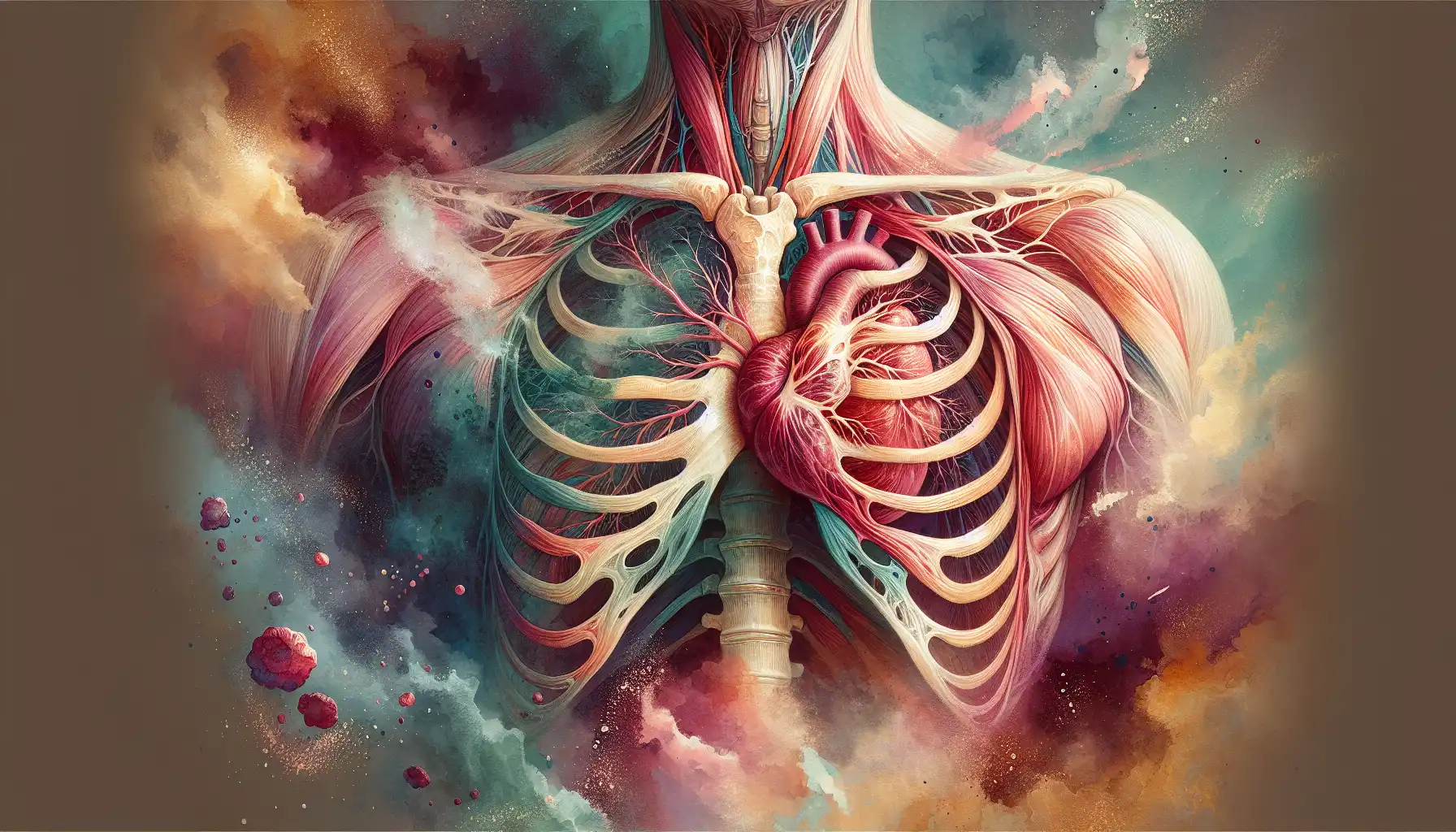The Diaphragm: Your Body’s Unsung Hero
Location and structure
Primary and secondary functions
most important muscle for breathing
Importance in overall health
How Diaphragm Health Affects Your Body
Respiratory efficiency
Core stability and posture
Influence on the nervous system
diaphragmatic breathing exercises have been found to reduce stress
Common Diaphragm Issues and Their Symptoms
Breathing pattern disorders
- Breathing through the mouth
- Noisy breathing
- Rapid or shallow breathing
- Upper chest movement more than the abdomen during inhalation
- Frequent yawning and sighing
- Difficulty coordinating breathing while talking or eating
Chronic pain and tension
- Non-specific lower back pain
- Muscular tension, especially around the shoulders, neck, and jaw
- Chest pain, particularly around the breastbone
- Tightness in the chest or throat
Digestive and emotional impacts
- Abdominal bloating
- Gastroesophageal reflux
- Difficulty with defecation and urination
- Emotional disorders such as anxiety, depression, and stress
- Lowered pain tolerance
diaphragmatic breathing exercises
Strategies for Optimal Diaphragm Care
Breathing exercises and techniques
diaphragmatic breathing exercises
- Lie down or sit comfortably
- Place one hand on your chest and another on your stomach
- Breathe in through your nose, feeling your stomach expand
- Exhale slowly through pursed lips, feeling your stomach contract
practicing this exercise for 5-10 minutes4-7-8 breathing practice
Physical activities that support diaphragm health
- Aerobic exercises like walking, swimming, or cycling
- Core strengthening exercises
- Yoga or Pilates, which often incorporate breath work
Lifestyle changes for long-term benefits
- Maintain good posture to allow your diaphragm to function optimally
- Avoid smoking and exposure to secondhand smoke
- Stay hydrated to keep your diaphragm and other muscles functioning well
- Manage stress through relaxation techniques, as stress can affect breathing patterns
Final Thoughts – Why You Should Look After Your Diaphragm
FAQs
What is the diaphragm, and why is it so important?How does a healthy diaphragm impact overall health?What are common issues associated with diaphragm dysfunction?What are the best ways to care for and strengthen the diaphragm?


